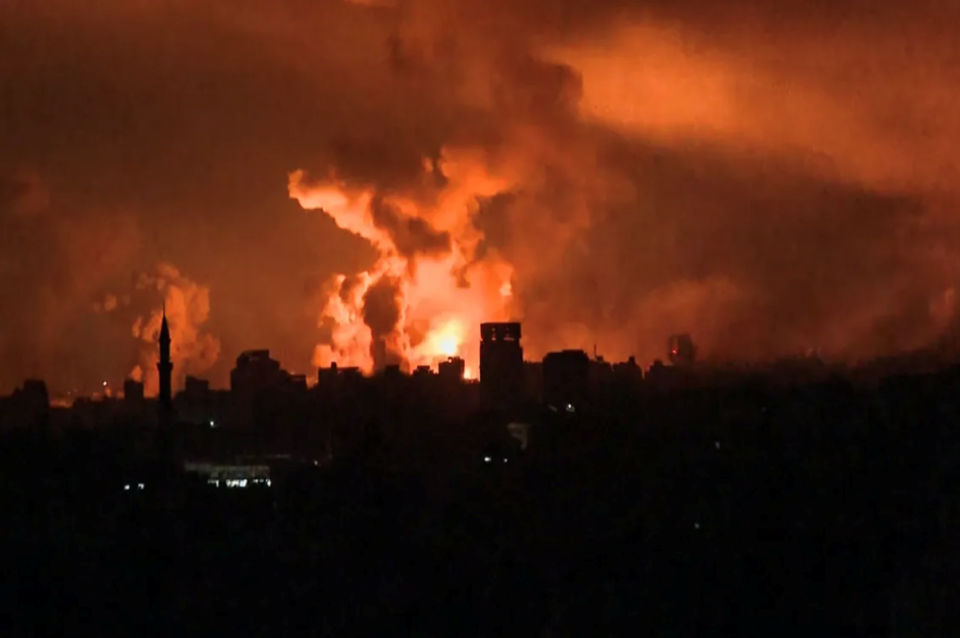This image grab from an AFP TV footage shows balls of fire and smoke rising above Gaza City during an Israeli strike in the evening of October 27, when Palestinians reported intensifying bombing and a communications blackout. (Photo: AFP)
New York– The Israel-Gaza war has entered a new stage with intensified bombing and ground operations by Israeli forces, the Committee to Protect Journalists (CPJ) said at the weekend.
The CPJ is highly alarmed by widespread reports of a communications blackout in Gaza.
As news bureaus lose contact with their crews and reporters in Gaza, who are independently bearing witness to provide information about developments and the human toll of this war, the world is losing a window into the reality of all sides engaged in this conflict.
Over the past three weeks, CPJ has documented the deadliest period for journalists covering conflict since CPJ began tracking in 1992. From October 7-27, 2023, at least 29 journalists were among more than 8,000 dead on both sides since the war began. This deadly toll is coupled with harassment, detentions and other reporting obstructions that include the West Bank and Israel. As the ability of journalists to engage in newsgathering and obtaining witness accounts has become increasingly limited, the public’s ability to know and understand what is happening in this conflict is severely compromised, with likely ramifications across the world.
A communications blackout is a news blackout. This can lead to serious consequences with an independent, factual information vacuum that can be filled with deadly propaganda, dis- and misinformation. CPJ is aware that many journalists remain on the ground in Gaza and many international journalists have flocked to Israel to cover the war. We remind all warring factions – including outside of Israel’s internationally recognized borders –that journalists are civilians and must be respected and protected by all warring parties in accordance with international humanitarian law. Deliberately targeting journalists or media infrastructure constitute possible war crimes.
At this dark hour, we stand with journalists, with those truth seekers whose daily work keeps us informed with facts that shed light on the human condition and help to hold power to account.

